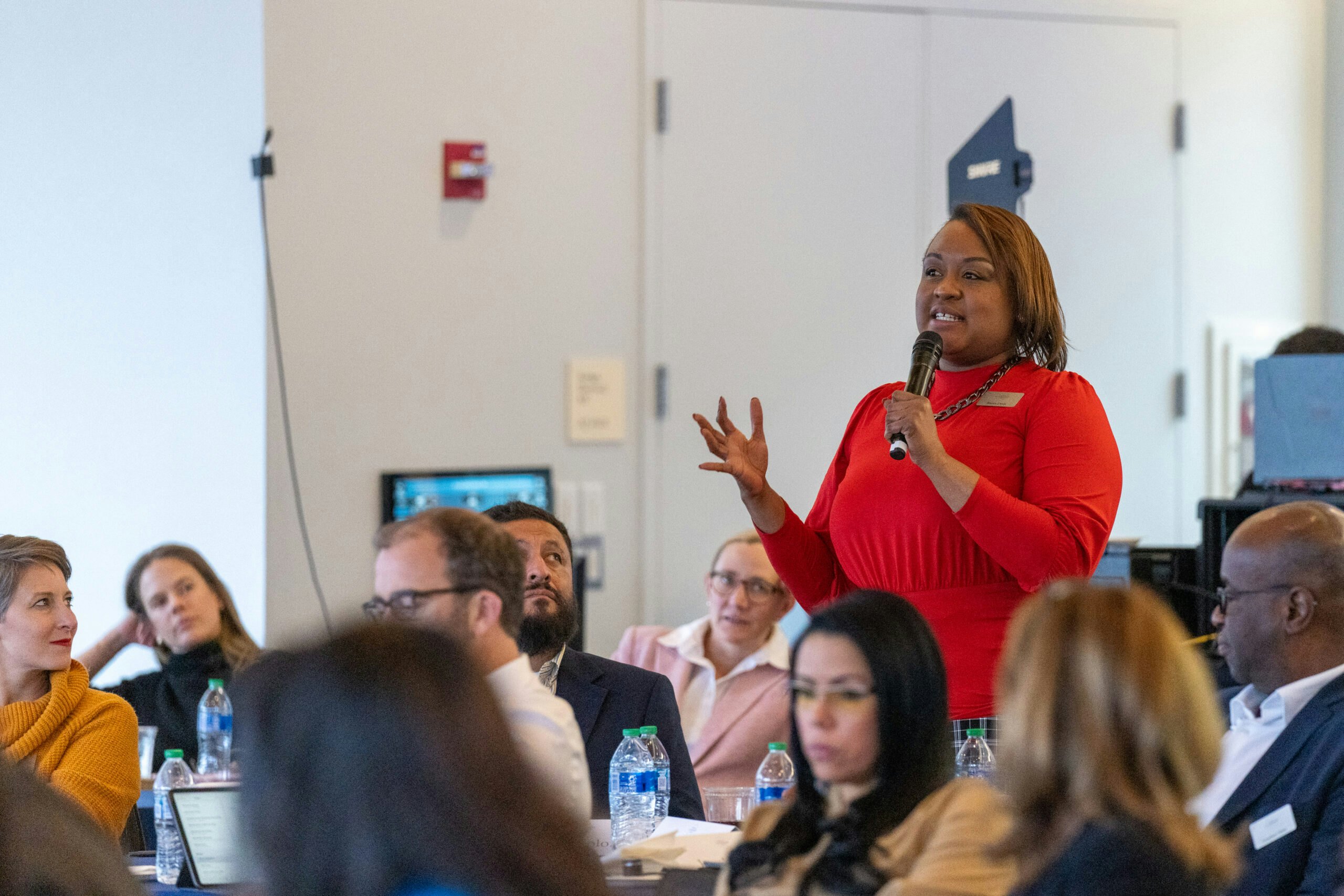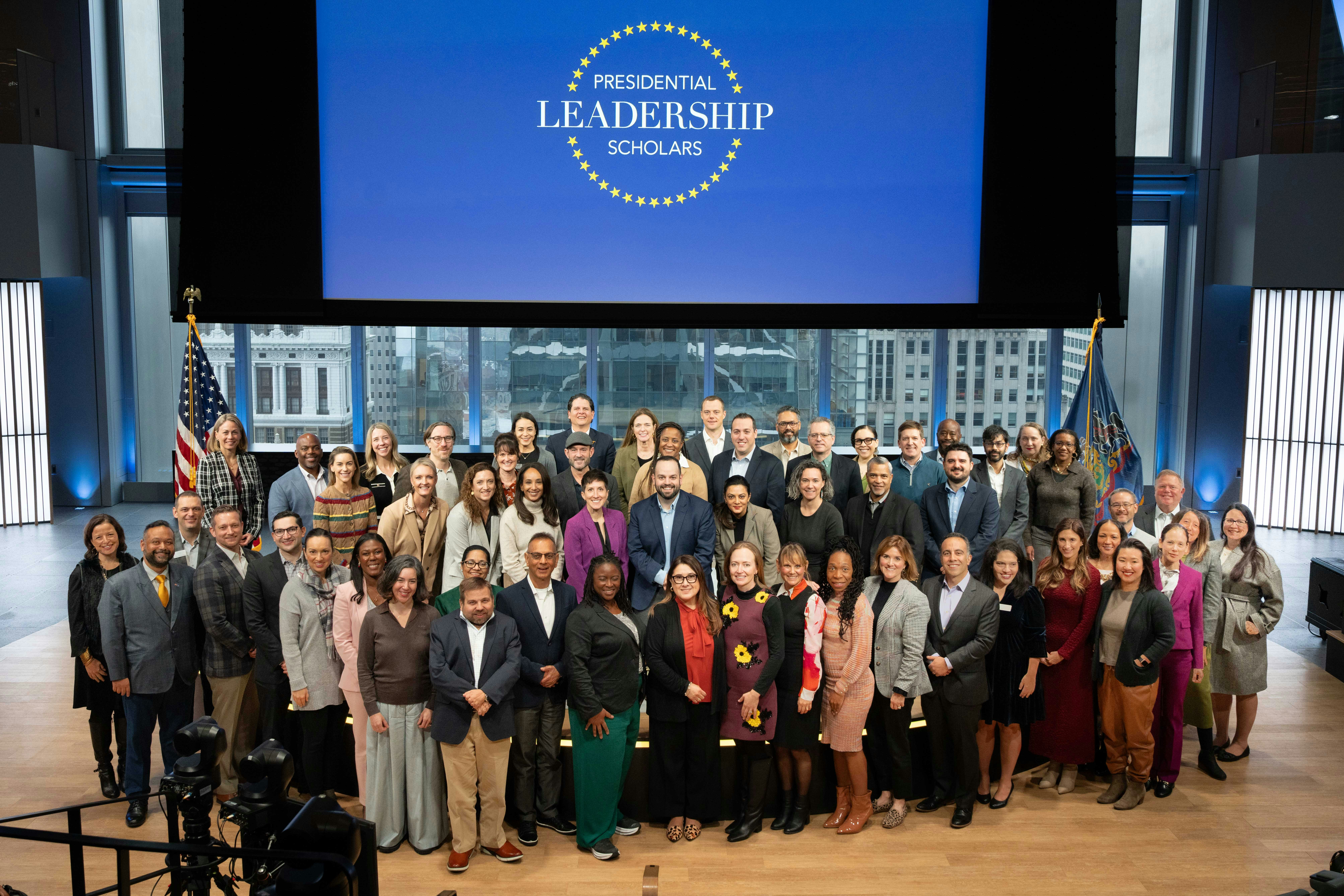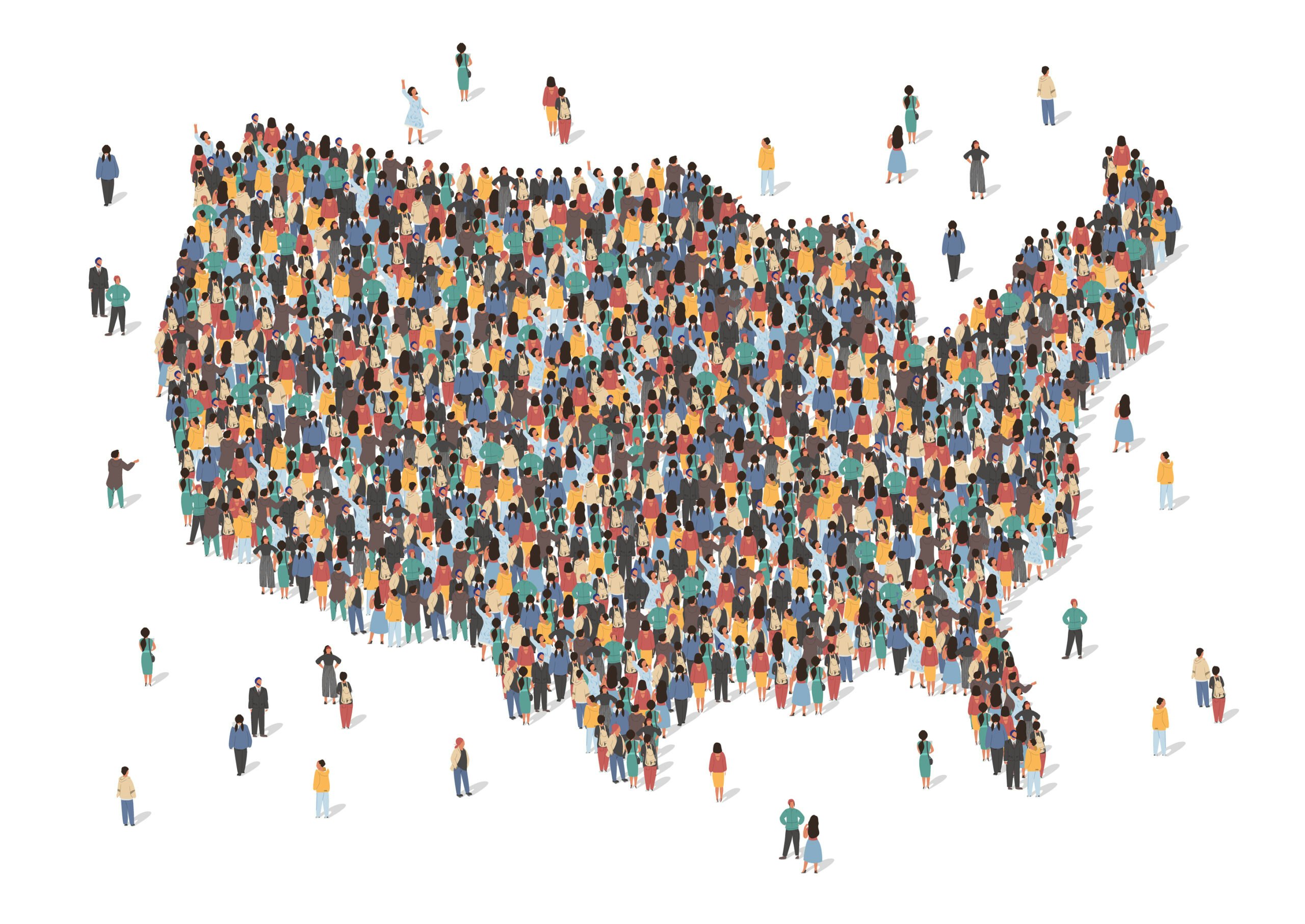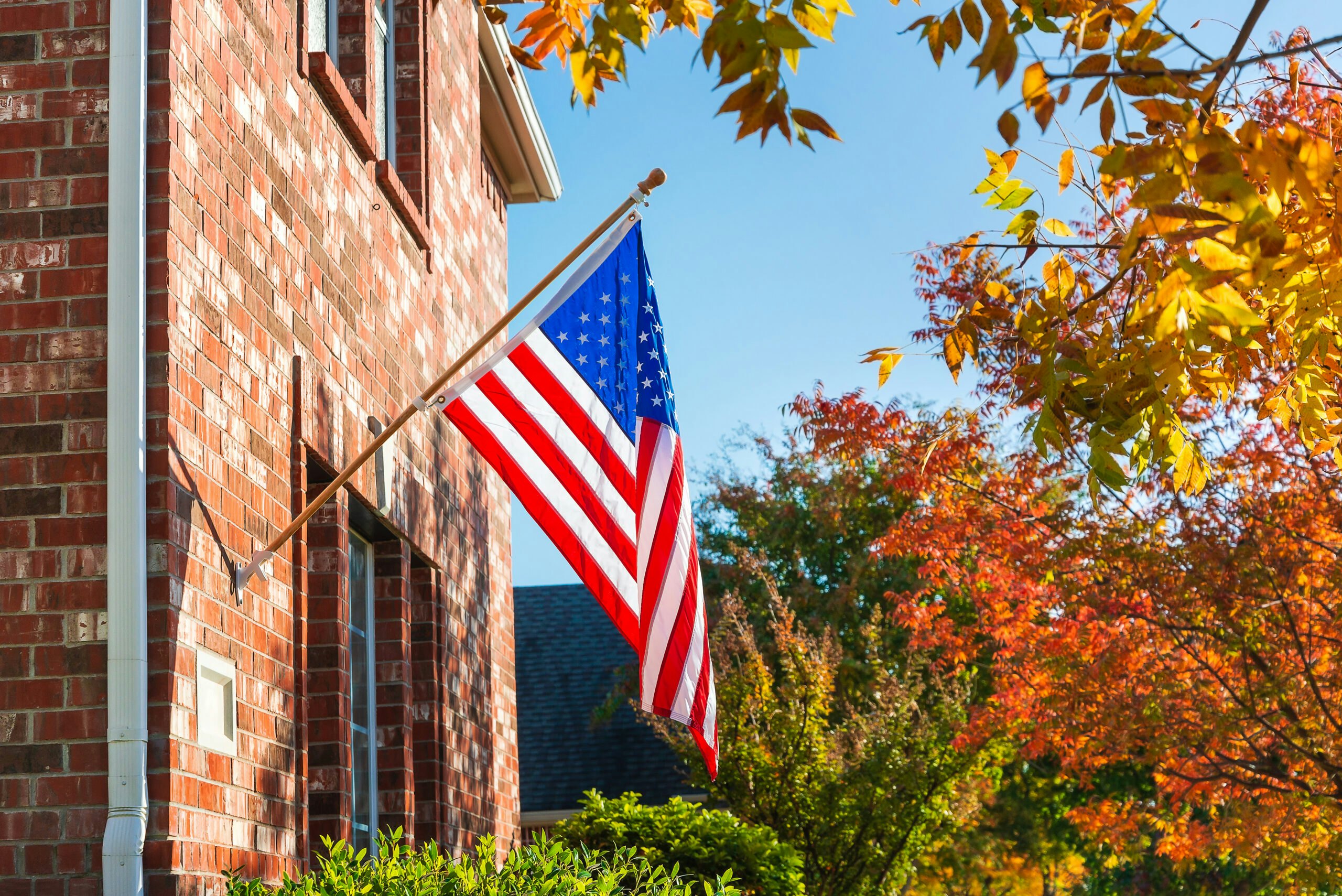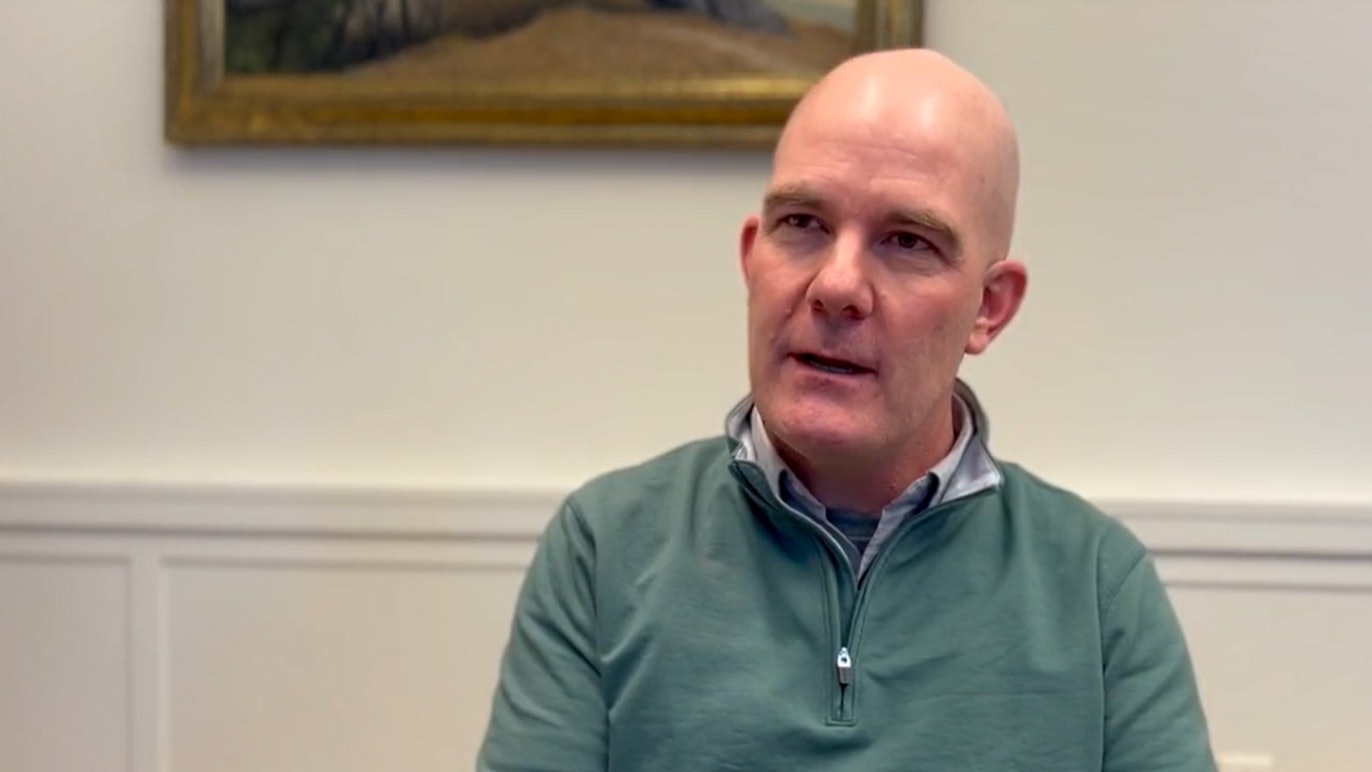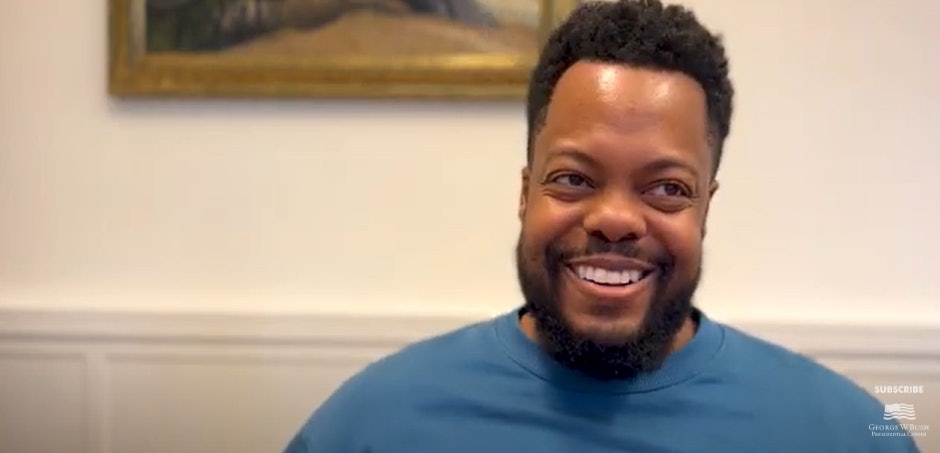Natalie Gonnella-Platts, Bush Institute Women's Initiative Director, and Chris Walsh, Bush Institute Senior Program Manager for the Women's Initiative and Human Freedom Initiative, explore how sports give people a sense of camaraderie and community.
I’m Natalie Gonnella-Platts and I’m a Buffalo and New York sports fan. I’m Chris Walsh and I’m a Boston sports fan. When it comes to our teams, we don’t usually get along, but, as human beings, we like and respect each other.
Sure, we disagree, especially when it comes to the AFC East. But at the end of the day, we admire our shared dedication, even to opposing sides. In sports and beyond, cultivating such friendships is needed as our country wrestles with deteriorating social trust and rampant polarization.
Though rudimentary in their examples of healthy competition, our local teams offer inspiration. They represent a shared story for fans regardless of individual differences. Through them we experience solidarity, pride, disappointment, and history.
More than that, the legacies of our teams and the core ideals they encompass help to bind community, often serving as generational conduits for unity, empathy, and civic renewal. They are uniquely positioned to influence engagement, while simultaneously creating platforms that connect us as a nation.
Of course, we hold a bias, but both Buffalo and Boston offer hopeful lessons as we look to bridge broader divides.
The best part about Buffalo? Authenticity. Western New Yorkers, adore their community (the snow less so). For Buffalonians, and especially fans of the Bills, the moniker as the City of Good Neighbors encompasses the very fiber of our being. If you’ve ever met anyone from the area, you know they are basically a Visit Buffalo billboard.
We also know how others often (and unfairly) see us – the perpetual underdog, the rust belt, the punchline of too many weather jokes. Yet still, Buffalo and Bills Mafia – a fan organized social movement known for tailgating and smashing tables – stay true to our roots. Folding tables aside, whether we win or lose – and there has been a lot of loss to learn from – Bills Mafia does so with neighborly zeal.
Not long after losing four consecutive Super Bowls in the early 1990s, a 17-year playoff drought began for the Bills. And as any football fan knows devastatingly well, your ticket to the post-season depends on more than just your team. 2017 was no different.
Thanks to Andy Dalton’s 49-yard touchdown pass, the Cincinnati Bengals win over the Baltimore Ravens meant the Bills advanced to the playoffs for the first time since 1999. Of course, there were celebrations. But Bills Mafia also responded in the most Buffalo way possible. As a thank you for ending the postseason drought, $17 donations flooded Dalton’s namesake charity, raising over $400,000 in support of seriously ill and physically challenged children and their families in Ohio.
In January 2021, when Buffalo defeated the Baltimore Ravens to advance to their first AFC Championship game since 1994, they again paid it forward. This time, Bills Mafia raised over $500,000 in honor of Raven’s quarterback Lamar Jackson to support Blessings in a Backpack, an organization that provides weekend support to food insecure students in and around the Louisville area. Jackson is a known patron.
And when NBC Sports Chicago called the Buffalo fanbase “the laughing stock of the NFL,” Bills Mafia again mobilized with the hashtag #morethanbreakingtables, funneling donations to Bear Necessities Pediatric Cancer Foundation, a Chicago based children’s charity.
Over the years millions of dollars has been crowdsourced via Bills’ fans benefiting causes and communities near and far.
Meanwhile, in Boston, the Red Sox maintain a special place in the hearts of fans. For nearly a century, they were simultaneously the source of commiseration as a team “cursed” never to win another World Series, and of renewed hope that “next year” would be different (which it finally was in 2004).
On April 15, 2013, the Sox found another way to uplift their city after two terrorist bombs killed and maimed onlookers at the Boston Marathon. As the city processed its shock and grief, the Red Sox embodied a movement called “Boston Strong.” This simple phrase proclaimed that Bostonians would bounce back from this heinous attack.
Days later, team leader David Ortiz addressed the crowd at Fenway Park. Channeling their raw emotions, he thanked first responders for their service and concluded, “This is our f—king city and nobody’s going to dictate our freedom. Stay strong.”
That speech was a rallying point that helped the region cope with tragedy. Having been a last place team the previous year, the underdog Sox started winning. As they did, the team reflected the community’s resilience as they grieved together, supported bombing victims, and sported “Boston Strong” patches on their uniforms. Ultimately, they won the World Series. And while their championship run didn’t erase the city’s scars, it galvanized people and provided hope.
More than that, the legacies of our teams and the core ideals they encompass help to bind community, often serving as generational conduits for unity, empathy, and civic renewal.
The power of sports also rises to meet national adversity.
As the country reeled from the 9/11 attacks on New York City and Washington, the New York Yankees reached the 2001 World Series. For Game Three, President George W. Bush threw out the opening pitch at Yankee Stadium. The documentary, “First Pitch,” captured how this moment reassured Americans that life could return to normal, that our country was united by common values, and, as President Bush observed, “that baseball could be part of the recovery after 9/11.”
More recently, the New England Patriots were pivotal players in securing 1.2 million N95 masks for healthcare providers in Massachusetts and New York. This was at a precarious time when personal protective equipment was in short supply. Working with the government, the Patriots provided their private jet to transport the masks from China to the United States.
As these stories demonstrate, our teams are part of the social fabric that binds us. Dr. Condoleezza Rice said it well, “There’s a reason that every country has its sports that it loves. They embody, somehow, the nation, and the national spirit, and the national pride. They rally around these sports figures. And at times of national triumph, we rally around them in joy. At times of national tragedy, we rally around them to remember who we are.”





